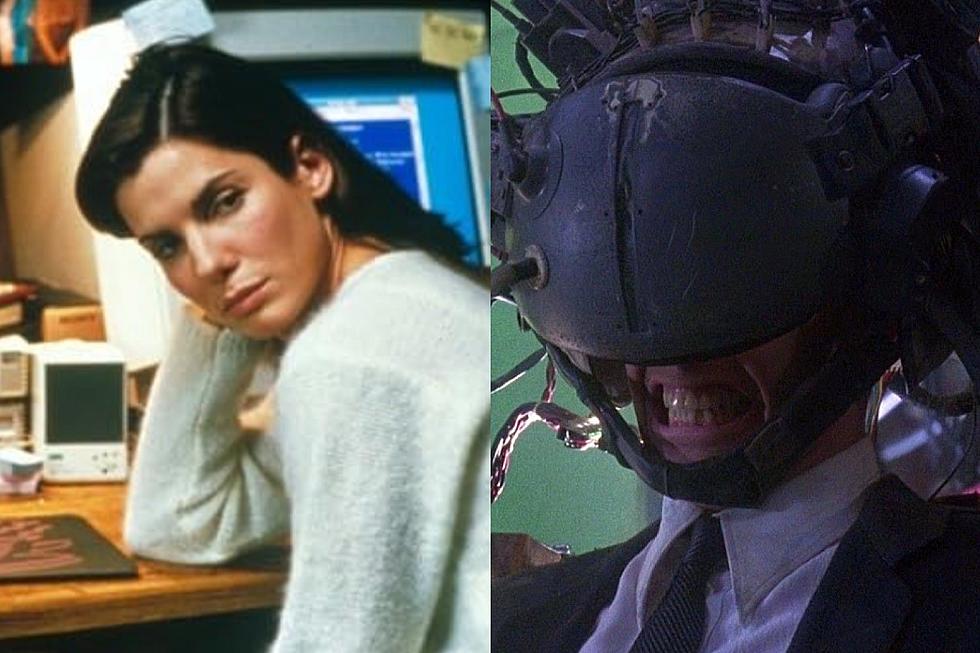
‘Silver Linings Playbook’ Review
David O. Russell's 'The Silver Linings Playbook' begins as one of the most arresting, empathetic and realistic portrayals of misunderstood mental health disorders since 'Ordinary People.' It concludes with a dopey dance routine more preposterous than the one in 'Little Miss Sunshine.' By the good grace of its performers (Bradley Cooper and Jennifer Lawrence, primarily) it is still agreeable in a crowd-pleasing way, but anyone who engages this film as something serious is as delusional as the main character is bipolar.
We open with Cooper returning from a court-appointed asylum to his working class Philadelphia neighborhood. Jacki Weaver and Robert De Niro are the weary but loving parents who are no less ill-equipped to deal with a bipolar 30-something son prone to outbreaks of violence than anyone else. The early scenes make good use of Cooper's inability to self-censor as he finds his way back into the community. (Between 'Silver Linings' and 'The Fighter,' Russell is cementing his claim to be the American Mike Leigh, the filmmaking representative of what, during the Samuel Alito confirmation hearings, were compellingly dubbed "Ethnic Whites.")
'Silver Linings Playbook' makes a case for being taken seriously with an early, first-person sequence detailing one of Cooper's manic episodes. It is among the highlights of this year in cinema. To Led Zeppelin's "What Is And What Should Never Be," which alternates between smooth blues and aggressive rock, a quick search for Cooper's lost wedding video becomes a violent frenzy rippling throughout the house and neighborhood. It is simultaneously funny, frightening and altogether sad, and Russell and company deserve all the accolades in the world for nailing this.
Would that the rest of the movie followed this sequence's lead. In time, Cooper teams up with the neighborhood "bad girl" (Lawrence) and, in a series of circumstances almost too embarrassing to repeat, they have to score highly at a dance contest to save their futures, their sanity, the family farm and to make everyone in the audience go "yaaaay!"
I'll admit it. I went "yaaaay!" too. But I felt dirty doing it. 'Silver Linings Playbook's" radical turn into formula happens so aggressively, and so blatantly, that is feels like a 'Simpsons'-esque parody of "what happens when soulless producers take over a movie." Furthermore, it rubbed me the wrong way with its treatment of mental health professionals.
Anupam Kher plays Dr. Patel, and in his early scenes he has a natural, comforting presence as a tough but fair therapist glowing with hard knocks wisdom. He gets a few laugh lines, but that doesn't diminish his standing.
Then, in the second half of the film (hereinafter referred to as the "wait, when did this movie lose control? half) he transforms into a wildly immoral enabler, all in the name of a good, happy ending. Despite a passing reference to the impropriety of seeing him outside of the clinic, he cheers along as illegal and irresponsible gambling pressures are heaped upon his patent's shoulders. He also stands by as his patient's unhealthy obsession (a relationship he must quit pursuing to ever find solace) is held out as a white lie carrot. I eagerly await the letter of condemnation from the American Psychiatric Association.
But if it is an exuberant ending you want it is an exuberant ending you get. Jennifer Lawrence and her tight pants are to be held and held tightly and woe be to the person who doesn't applaud when our twin loons walk off into the sunset. It's also the best thing Robert De Niro has been involved in for years. 'Silver Linings Playbook' is a well-put together piece of fluff and a solid date movie. That it (unintentionally, I'm sure) may insult people with mental health problems is just a casualty.
'Silver Linings Playbook' opens in select theaters on November 16 and nationwide on Thanksgiving.
Jordan Hoffman is a writer, critic and lapsed filmmaker living in New York City. His work can also be seen on Film.com, Badass Digest and StarTrek.com.
More From ScreenCrush









